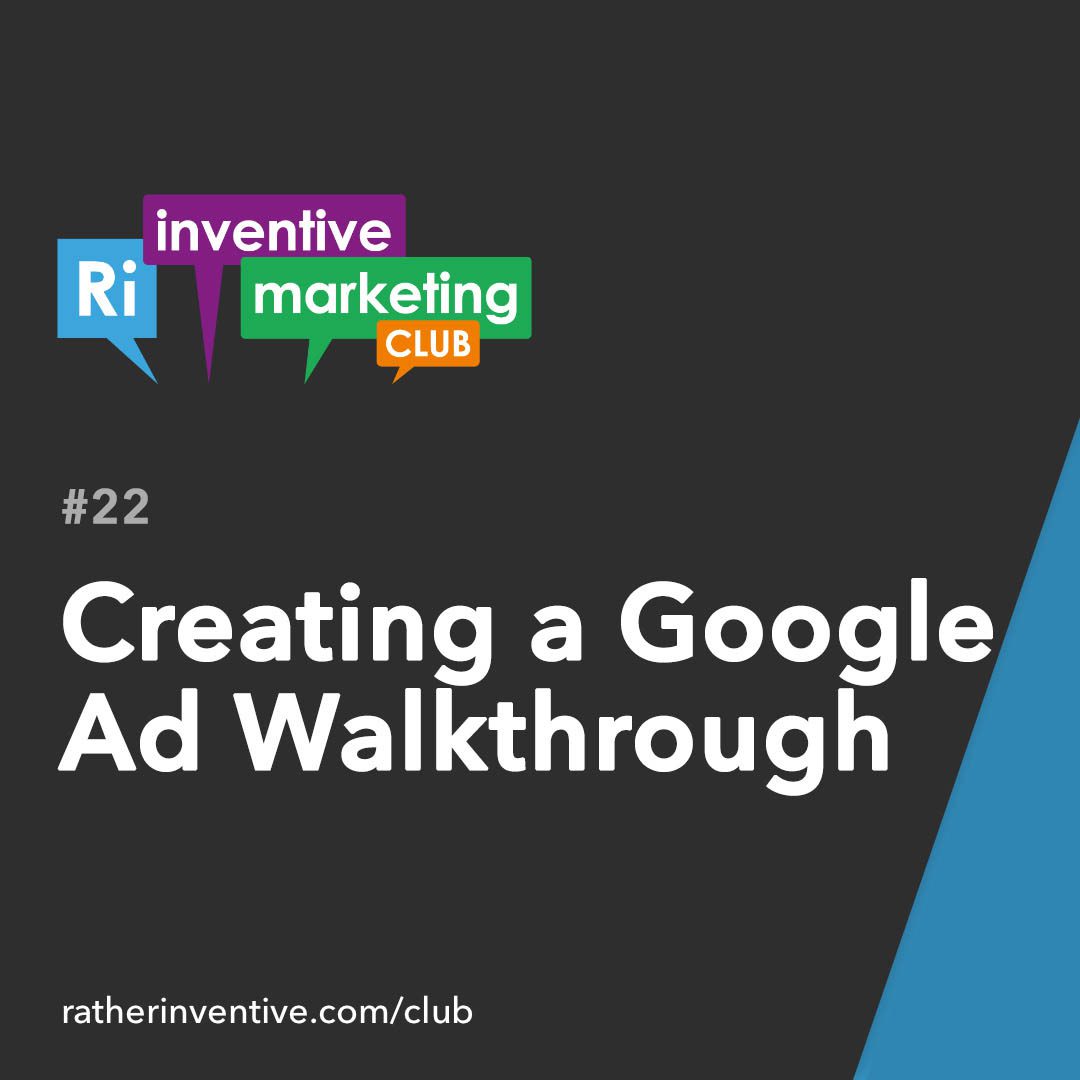This webinar is a screen share walkthrough of how to create text ad on Google. I share some of the tips I’ve learned along the way and my process for planning and creating ads on Google.
Notes
Where possible try to do inbound marketing put information out there for people to find. However, advertising and outbound marketing can help kick things off to start with. It can be good to combine the two.
Inbound – You put out information i.e. a how to guide, a video, give and share information. Your customer will find it online and share it for you.
Outbound – Pushing information at your customer; disrupting what they are doing i.e. a phone call, advert.
Planning
Advertising comes down to planning:
- Goal – What do you want to happen?
- Audience – Who is it for? What are their needs?
- Benefits – Why does your product matter?
- Budget – Guess at first, quickly learn acquisition costs (£ ads / # orders)
Review and monitor your adverts regularly.
We’ll be using CCTV Logbook from Ecl-ips as an example. This web app helps people audit their CCTV system hardware.
Campaign 1
- Goal: Signup for a trial walkthrough webinar
- Audience: Security Managers who need to know when assets where maintained as they are responsible for site security and cannot have any cameras or recording
equipment out of order. Saving time for staff or external engineers - Benefits: Detailed CCTV camera asset log, Maintains full audit history, Easy to use, Save time on engineering audits
- Budget: £600/mo (£20/day)
Campaign 2
- Goal: Watch video ‘How to manage GDPR and privacy for CCTV’
- Audience: Business Owners who need to comply with legal obligations of data protection enforced by ICO. Don’t want to risk fine.
- Benefits: GCPR compliant and secure. Reduce risk of fine from ICO
- Budget: £300/mo (£10/day)
Recommend video IMC11 Understanding your customer
Research
Quick research
- Search keyword in Google, note the main phrases used
- Scroll to bottom and look at related searches
- Build phrase lists for each campaign
Detailed research
- Tools / Keyword Planner
- Discover new keywords
- Add keywords from campaign phrase list
- Find more keywords, look for ones with higher searches and low competition
- If low search volume then might need broader range of keywords
- Check out the competition, what other ads/organic results are there? What are they offering?
Create keyword list
cctv logbook, cctv audit, cctv audit template, cctv audit report, cctv camera inspection checklist, cctv asset manager, cctv maintenance report, cctv audit system, audit software, cctv audit software
Split into two ad campaigns
CCTV Log Book
cctv logbook, cctv log book
CCTV Audit Template (or CCTV Audit Checklist log)cctv audit, cctv audit template, cctv audit report, cctv camera inspection checklist, cctv asset manager, cctv maintenance report, cctv audit system, audit software, cctv audit software
Forecast the cost
- Tools / Keyword Planner
- Get search volume and forecasts
- Experiment with different initial click costs
- Use to explore price to per per click
Creating a new campaign
- New campaign / Leads / Search / Website visits
- Website: https://cctvlogbook.com/
- Add main keyword to campaign name: cctv logbook
- Don’t include display partners. Dilutes traffic
- Expand more settings
- Add end date. To prevent leaving active. 30 days to start.
- Add schedule to run between 07:00-22:00. Separate for week day and week ends to make easier to review and disable
- Target to location. UK in this case as low searches but may wish to target locally
- Add a budget: £20
- And focus on conversions
- Add site links, extra links to specific pages
- Add call extension if relevant
Setup ad group
- Name as primary keyword
- Add keywords. BMM, Phrase and Exact. Allows easier review later
+cctv +logbook+cctv +log +book”cctv logbook””cctv log book”[cctv logbook][cctv log book]
Create ads
- Start with Google defaults and amend
- Create multiple adds with different wording. You can review and pause.
Google Ads Walkthrough Tips
- Never use broad keywords. This will waste your budget
- Analyse best keywords to use in tool like Google Keyword planner
- Search main keywords in Google to make sure expected results are returned and the keywords mean the same to you and Google
- Look at competitor adverts. Find out who is number one
- Limit number of ad group keywords to five and keep to same topic
- Use exact match [my keyword], phrase match “my keyword” and Broad Match Modified (BMM) +my
- +keyword to capture broadest range of traffic and help review process
- Use bid stacking e.g. Pay more for exact match (most expensive), phrase match (next), then BMM (next)
- Check devices: and change bid adj if want to exclude device types such as mobile
- Setup ad schedule 7am-10pm for general viewing and removing time waster clicks
- Ideally link to dedicated landing pages on website with text that mirrors the ad
Swipe-Worthy – Marketing, Ad and Copywriting examples

